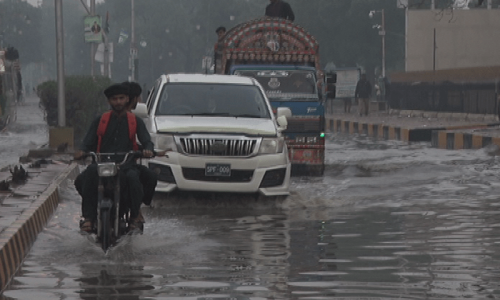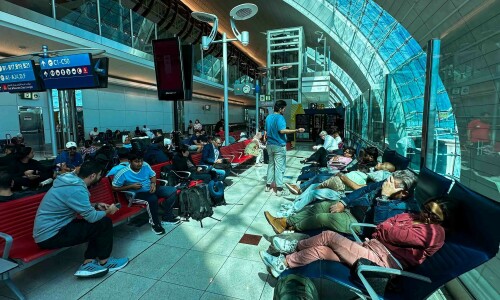Afghan women and girls who have won freedoms they could not have dreamt of under the last Taliban rule that ended 20 years ago are desperate not to lose them now that they are back in power.
Taliban leaders have made reassurances in the build-up up to and aftermath of their stunning conquest of Afghanistan that girls and women would have the right to work and education, although they have come with caveats.
Some women have already been ordered from their jobs during the chaos of Taliban advances across the country in recent days. Others are fearful that whatever they say, the reality may be different.
"Times have changed," said Khadija, who runs a religious school for girls in Afghanistan.
"The Taliban are aware they can't silence us, and if they shut down the internet the world will know in less than five minutes. They will have to accept who we are and what we have become."
That defiance reflects a generation of women, mainly in urban centres, who have grown up being able to attend school and university and to find jobs.
When the Taliban first ruled Afghanistan from 1996 to 2001, their strict interpretation of Islamic law — sometimes harshly enforced — dictated that women could not work and girls were not allowed to attend school.
Women had to cover their faces and be accompanied by a male relative if they wanted to venture out of their homes. Those who broke the rules sometimes suffered humiliation and public beatings by the Taliban's religious police.
During the past two years, when it became clear that foreign troops were planning to withdraw from Afghanistan, Taliban leaders made assurances to the West that women would enjoy equal rights in accordance with Islam, including access to employment and education.
On Tuesday, at the Taliban's first press conference since seizing Kabul on Sunday, spokesperson Zabihullah Mujahid said women would have rights to education, health and employment and that they would be "happy" within the framework of Sharia law.
Specifically referring to women working in media, Mujahid said it would depend on what laws were introduced by the new government in Kabul.
On Tuesday, a female anchor for the private Afghan channel Tolo TV interviewed a Taliban spokesman live on air.
Women forced from work
Afghan girls' education activist Pashtana Durrani, 23, was wary of Taliban promises.
"They have to walk the talk. Right now they're not doing that," she told Reuters, referring to assurances that girls would be allowed to attend schools.
"If they limit the curriculum, I am going to upload more books to [an] online library. If they limit the internet ... I will send books to homes. If they limit teachers I will start an underground school, so I have an answer for their solutions."
Some women have said that one test of the Taliban's commitment to equal rights would be whether they give them political and policymaking jobs.
Nobel Peace Prize winner Malala Yousafzai said she was deeply concerned about the situation in Afghanistan.
"I had the opportunity to talk to a few activists in Afghanistan, including women's rights activists, and they are sharing their concern that they are not sure what their life is going to be like," Yousafzai told BBC Newsnight.
The United Nations International Children's Emergency Fund (Unicef) expressed cautious optimism about working with Taliban officials, citing their early expressions of support for girls' education.
It is still delivering aid to most parts of the country and has held initial meetings with new Taliban representatives in recently seized cities like Kandahar, Herat and Jalalabad.
"We have ongoing discussions, we are quite optimistic based on those discussions," Unicef's chief of field operations in Afghanistan, Mustapha Ben Messaoud, told a UN briefing.
But UN chief Antonio Guterres warned on Monday of "chilling" curbs on human rights under the Taliban and mounting violations against women and girls.
Reuters reported last week that in early July, Taliban fighters walked into a commercial bank branch in Kandahar and ordered nine women working there to leave because their jobs were deemed inappropriate. They were allowed to be replaced by male relatives.
















































